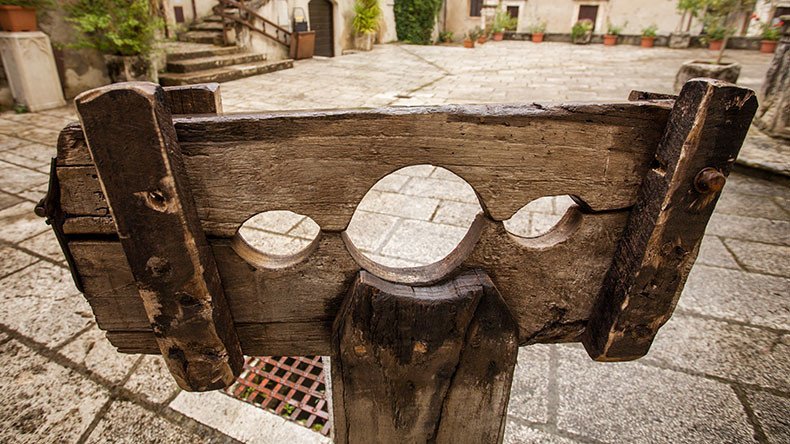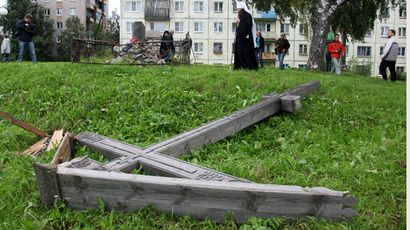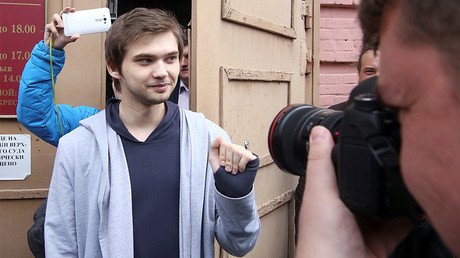Rhyme & punishment: Poet faces prosecution over inflaming hatred towards atheists in southern Russia

An amateur poet in Russia’s southern Krasnodar Region is facing criminal charges for disseminating hatred after calling atheists “despicable” in a poem he posted on social media.
Maksim Drozdov also wrote in the poem that he hoped for the return of the Holy Inquisition – a system of practices used by the Catholic Church to combat heresy in the Middle Ages.
The accused works as a lathe operator at a local factory and writes poetry in his spare time. He publishes some of his poems on the Russian social-media network VKontakte (VK).
One of the poems that reportedly described atheists as “despicable” and hoped for the return of the Holy Inquisition has already been removed from the internet. However, a complaint has resulted in legal proceedings against Drosdov.
Charges were initiated against the amateur poet earlier this month but came to public attention only this week, when his defense attorney, Aleksy Avanesyan, described the issue on Facebook.
The lawyer wrote that the case was instigated under the article 282 of the Russian Criminal Code, which prohibits disseminating hatred or strife or insulting the dignity of representatives of a certain social group.
If found guilty, the accused could spend up to six years in prison.
The regional directorate of the Investigative Committee – the federal agency dealing with serious crimes – released a statement on Wednesday, in which it confirmed that Drozdov was under investigation over suspected dissemination of hatred.
“According to investigators, in May this year the man posted a poem on a social-media network that was extreme in its content,” the statement read.
“Linguistic research concluded that the published text contained some negative statements about a group of citizens who are united in their attitude to religion, and it calls for hostile action towards these citizens.”
Avanesyan also said that his client had been repeatedly summoned for questioning by investigators, and had explained that he had had no intention of insulting anyone by publishing the poem.
Drozdov claimed that the publication was a work of satire, but linguistic experts have concluded that the text may be construed as an insult to atheists.
“I want to have a look at the person who had filed in the original complaint,” his lawyer wrote on Facebook. “How does he intend to prove that he is an atheist? Would he burn the Bible?”
Avanesyan also stated that he wanted to call blogger Ruslan Sokolovsky and his defense attorney as witnesses in the case.
Ruslan Sokolovsky gained notoriety in Russia and abroad in May, when a court in the Urals city of Ekaterinburg found him guilty of instigating strife and insulting the religious feelings of Russian citizens.
He was given a three-and-a-half-year suspended sentence for making a number of insulting comments about religion while playing the augmented reality game, Pokémon Go, inside the Ekaterinburg Church of All Saints.
This was videoed by Sokolovsky and published on YouTube.
After the blogger’s conviction, the Deputy Head of the Missions Department of the Moscow Patriarchate said that the Russian Orthodox Church hoped he would see the suspended sentence as a sign that mercy exists in this world, and that God is the source of his mercy.














